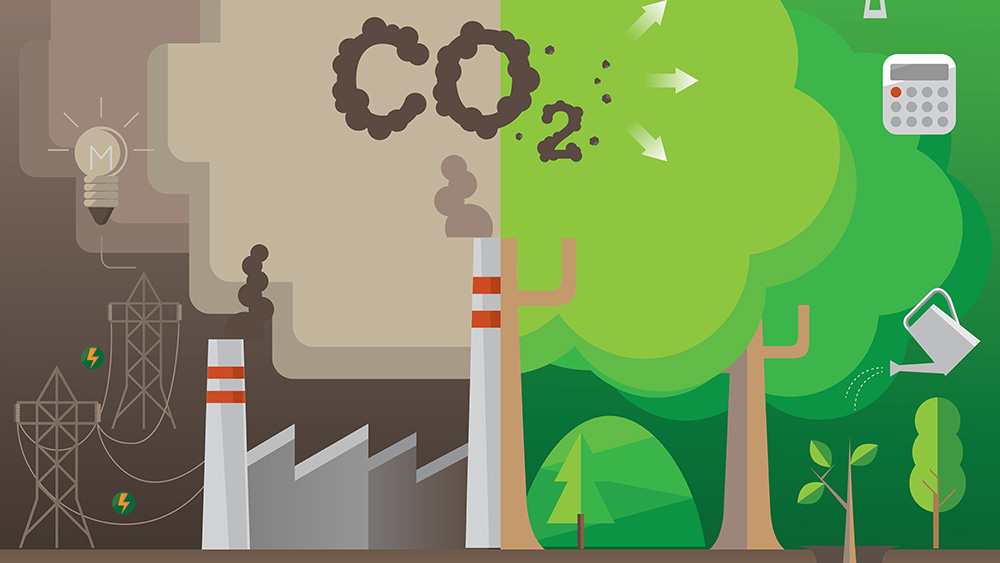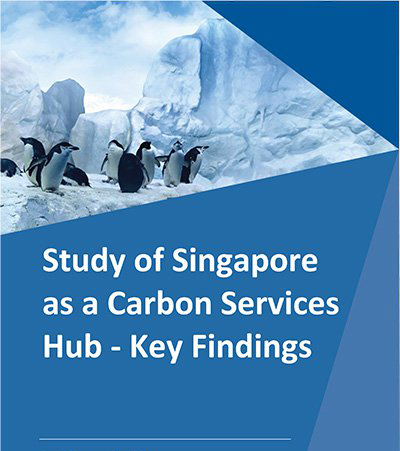A study has found that as the world transits to a low-carbon future, Singapore is well placed to support the climate goals of corporates and governments globally. Conducted by South Pole, Vivid Economics, and Engeco, the study found that Singapore’s advantages, such as its existing ecosystem of carbon services, hub position for green finance and commodity trading, and proximity to Asia, will strengthen its effectiveness in offering carbon management services to companies globally. It also affirmed Singapore’s ongoing efforts to develop its ecosystem of carbon services as set out in the Singapore Green Plan 2030.
The “Study of Singapore as a Carbon Services Hub” was jointly commissioned by the Singapore Economic Development Board (EDB) and Enterprise Singapore (ESG) to assess the role that Singapore can play to provide services for a low-carbon future and provide considerations to develop Singapore as a go-to location for carbon services.
The key findings of the study are as follows:
a. Singapore’s trusted reputation and strong fundamentals make it an ideal location to serve markets beyond itself
Singapore can leverage several pre-existing advantages to provide carbon management services.
- Singapore is a regional hub for commodity trading and financial services. This presents opportunities to co-locate commodity and carbon trading desks and support financing towards decarbonisation. Moreover, being an international aviation and shipping hub makes Singapore an attractive carbon credits trading destination for international sectoral schemes such as the Carbon Offsetting and Reduction Scheme for International Aviation (CORSIA).
- Singapore’s climate policy framework and targets for decarbonisation signal its commitment in carbon mitigation.
- Singapore has a small but growing carbon services ecosystem. It is host to headquarters or regional offices of more than 70 companies involved in carbon services.
- Singapore’s close proximity and connection to Southeast Asia (SEA), which is rich in nature-based solutions for tackling climate change, is advantageous to providing services to originate, finance and trade carbon credits from the region, and to develop insetting projects within SEA-based supply chains.
b. Singapore is well-positioned to provide a diverse range of carbon services
At the heart of SEA, Singapore can support regional growth by providing a range of services to complement the region’s efforts in sustainability. Depending on global market developments, the projected gross value add available to Singapore’s economy by 2050 could be between USD 1.8 billion to USD 5.6 billion (SGD 2.4 billion to SGD 7.6 billion). These services include:
- Providing financial, financial intermediation, and legal services related to helping companies decarbonise, such as services required to support compliance schemes, sectoral schemes, and voluntary markets.
- Supporting capacity building in SEA, in areas like carbon accounting, Monitoring, Reporting, Verification (MRV), as well as governance for carbon credits, to aid the development of compliance and voluntary markets in the region.
- Providing advisory services for regional operations of international businesses with decarbonisation ambitions.
- Facilitating the procurement of carbon credits for the aviation and shipping sectors given the strong decarbonisation agenda in these sectors.
c. Carbon services and trading hub can bring about new business and job opportunities for Singapore
- Jobs that could be created are mostly in services that Singapore already provides, such as commodity financing and trading, insurance, and legal services. This suggests that more professionals in existing sectors will need to use existing skills to support clients’ decarbonisation needs, leading to job growth in new and existing sectors.
- As carbon services grow, skills to manage carbon footprint, such as climate risk analysis, decarbonisation strategy development, and carbon trading will be in demand to support clients’ decarbonisation needs.
- New roles in governance services, such as certification and verification, are expected to be created. These positions can help to ensure the integrity of decarbonisation efforts.




